The Himalayan cat is an impressive breed, inheriting the best traits from its Siamese and Persian ancestors. If you’re considering adopting one of these beautiful cats, then you’re in for a treat! Let’s explore the fascinating characteristics and care requirements of the Himalayan cat.
1 All About Himalayan Cats
Origin of Himalayan Cats
Himalayan cats, also known as Himalayan Persian cats, originated in England and the United States. They are the result of a cross between Siamese and Persian cats, carefully bred by Virginia Cobb and Clyde Keeler of Harvard University in 1931.
It wasn’t until 1957 that the breed was officially recognized by the CFA (Cat Fanciers’ Association) after undergoing strict selection processes. However, other organizations like the ACFA, TCA, and AACE do not consider them as part of the Persian lineage.
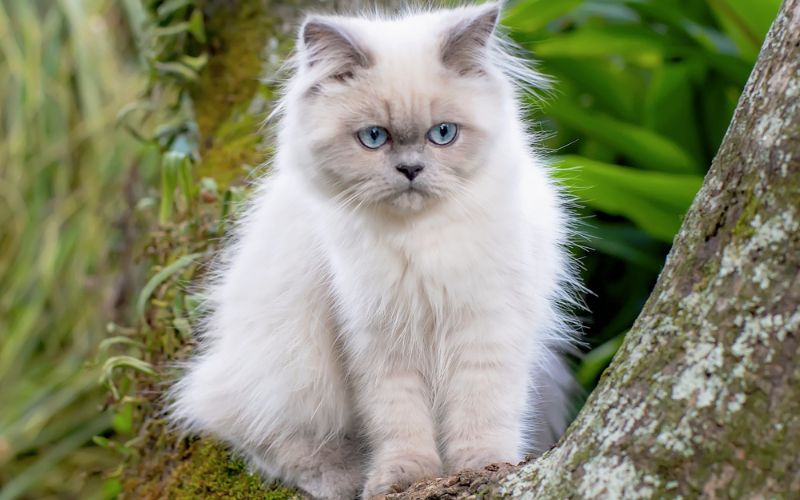 Origin of Himalayan Cats
Origin of Himalayan Cats
Despite this, Himalayan cats have captured the hearts of cat enthusiasts worldwide. Compared to Russian or Exotic cats, Himalayans have a more modest stature, standing at a height of just 25-30 cm.
Their short legs, combined with a short neck and round head, give them a unique and adorable appearance that’s simply irresistible.
Classification of Himalayan Cats
At first glance, most Himalayan cats may appear identical. However, there are actually two types of Himalayan cats, distinguished by the structure of their noses. These are the flat-nosed Himalayan and the upturned-nosed Himalayan, each with varying respiratory capabilities.
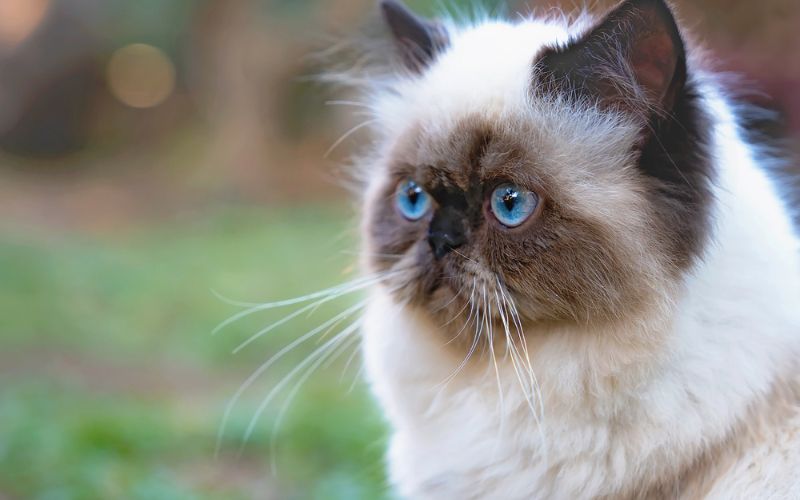 Classification of Himalayan Cats
Classification of Himalayan Cats
Common Himalayan Cat Coat Colors
Himalayan cats boast a diverse range of coat colors. While their fur may not be as glossy as some other breeds, it is incredibly soft and fluffy. Typically, their coats are predominantly white or cream, accented with darker colors such as dark brown, brown, deep blue, red, or brown spots on their ears, legs, tails, and faces. These colors create a beautiful and harmonious look.
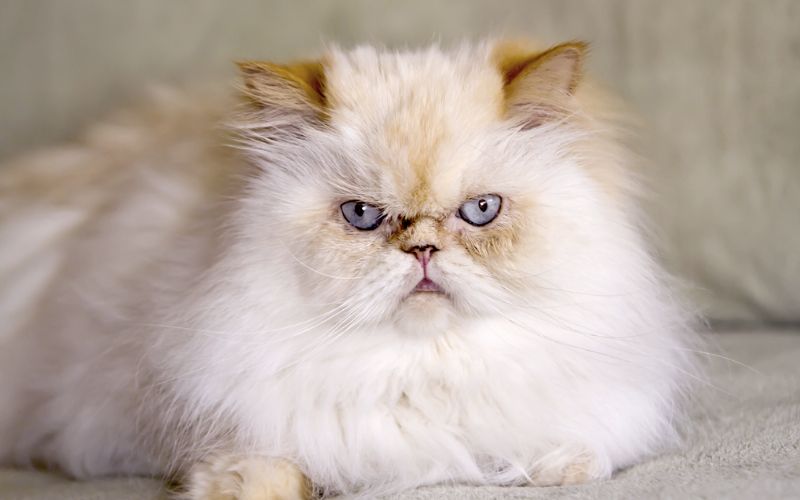 Common Himalayan Cat Coat Colors
Common Himalayan Cat Coat Colors
Physical Characteristics of Himalayan Cats
Himalayan cats have a stocky and low-slung body shape, typically weighing between 3-6 kg. Despite their round appearance, they are surprisingly agile and muscular, and their weight is considered the ideal standard for cats, not obese.
One of their most striking features is their large, round eyes, which are a deep shade of blue. You’ll find yourself drawn to their adorable faces. Their upturned noses and small muzzles further enhance their captivating appearance.
Additionally, their ears are always alert, and their long, fluffy tails wave gracefully like a feather duster in the wind.
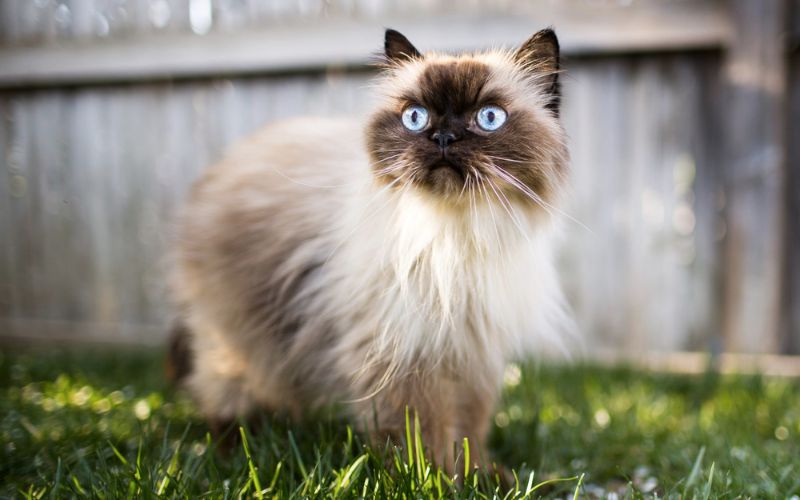 Physical Characteristics of Himalayan Cats
Physical Characteristics of Himalayan Cats
Personality Traits
Himalayan kittens are playful and mischievous, but as they mature, they tend to become more reserved and gentle. While they enjoy their independence, they are also affectionate and love to snuggle up with their favorite humans. They adore being petted, cuddled, and held in your lap.
These cats are known for their sensitive nature. If teased for too long, they won’t react aggressively by scratching or biting; instead, they will quietly retreat to a quiet place. To form a strong bond with a Himalayan cat, approach them slowly and show your love and care. Over time, they will reciprocate with a deep and unwavering devotion.
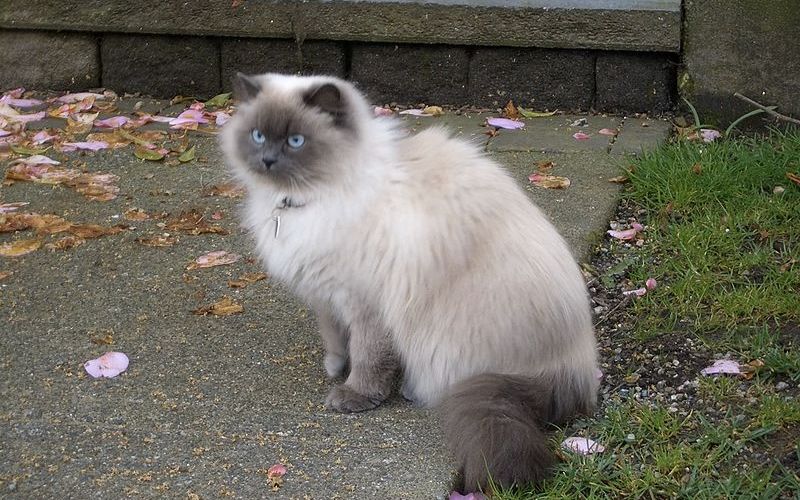 Personality Traits
Personality Traits
Why You Should Consider Adopting a Himalayan Cat
Himalayan cats are adaptable and easy to live with. Their gentle, friendly, and refined nature will bring you joy and comfort after a long day or during difficult times.
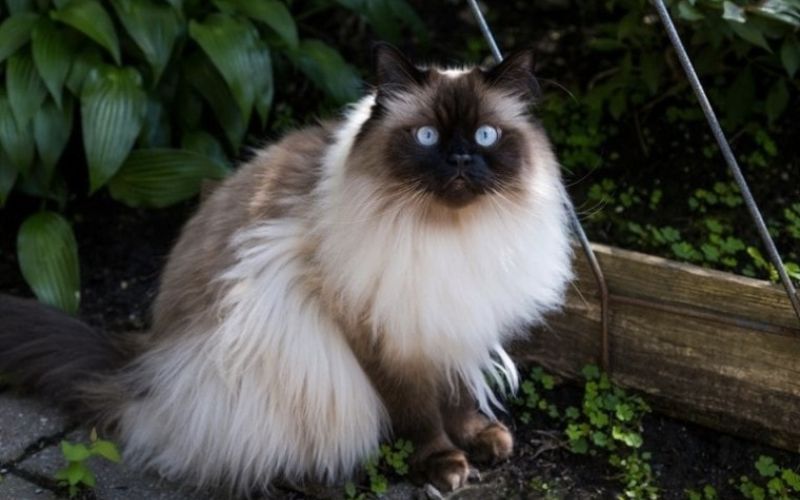 Why You Should Consider Adopting a Himalayan Cat
Why You Should Consider Adopting a Himalayan Cat
2 Caring for Your Himalayan Cat
Feeding Your Himalayan Cat
The diet of a Himalayan cat typically consists of fresh or dry food. Regardless of the form, it’s essential to ensure their meals are nutritionally balanced and include proteins, fats, vitamins, and minerals. If possible, invest in high-quality cat food or supplements.
Avoid feeding your cat fermented foods, raw eggs, chocolate, onions, or garlic. For more guidance on what to feed your cat, refer to the recommendations provided by the Association of American Feed Control Officials (AAFCO).
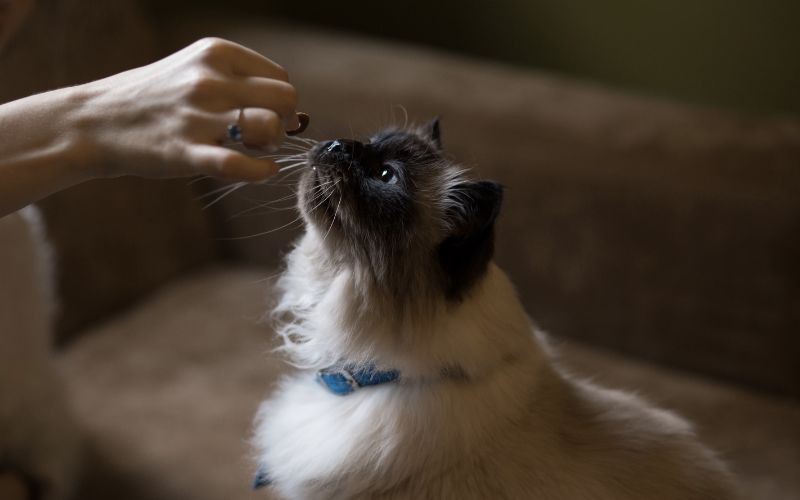 Feeding Your Himalayan Cat
Feeding Your Himalayan Cat
Nutritional Requirements at Different Life Stages
Nutritional needs for Himalayan kittens from birth to 12 months old:
During this critical period of development, pay close attention to their diet to prevent digestive issues. For the first month, kittens should only drink their mother’s milk or specialized formula. From 4-5 weeks old, you can introduce solid food, but it’s best to offer small, frequent meals, about 5-6 times a day. Opt for foods with a higher water content to support their growth.
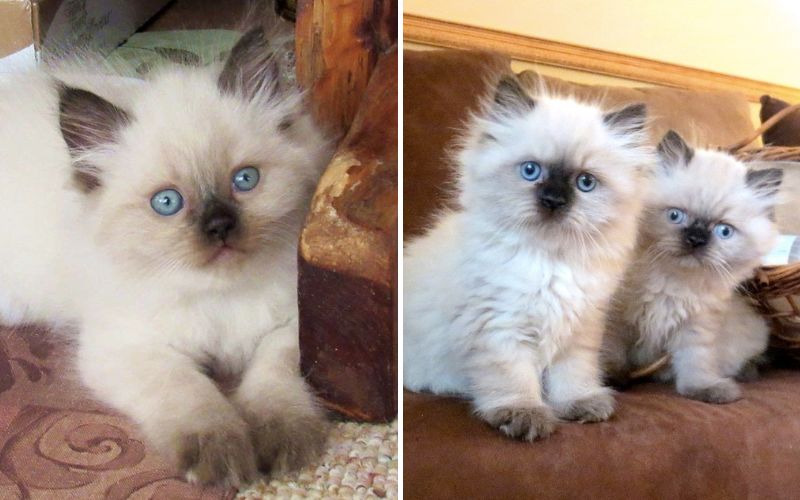 Nutritional Requirements for Kittens
Nutritional Requirements for Kittens
Nutritional Requirements for Adult Himalayan Cats
Once your Himalayan cat reaches adulthood, maintain a balanced diet with adequate nutrition. A typical adult Himalayan cat weighing around 250 calories per day to maintain a healthy weight. Remember, cats don’t drink much water, so ensure their food contains sufficient moisture to prevent urinary tract issues.
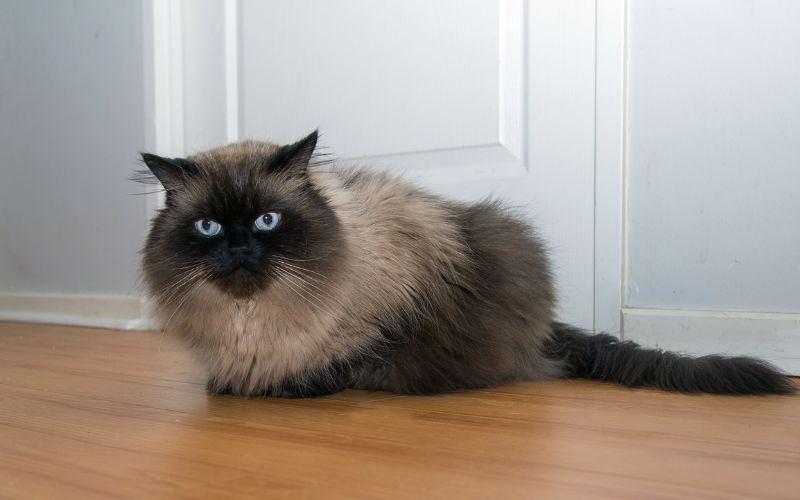 Nutritional Requirements for Adult Cats
Nutritional Requirements for Adult Cats
Grooming and Hygiene for Himalayan Cats
To keep your Himalayan cat’s coat clean and shiny, regular brushing and bathing are essential. Use a mild, cat-specific shampoo to prevent hair loss or discoloration. Alternatively, treat your cat to a professional spa experience for the ultimate pampering session.
As Himalayan cats tend to have watery eyes, pay extra attention to eye hygiene to prevent any vision problems. Use a damp cloth to gently clean their eyes, nose, chin, and ears daily to remove any dirt or debris.
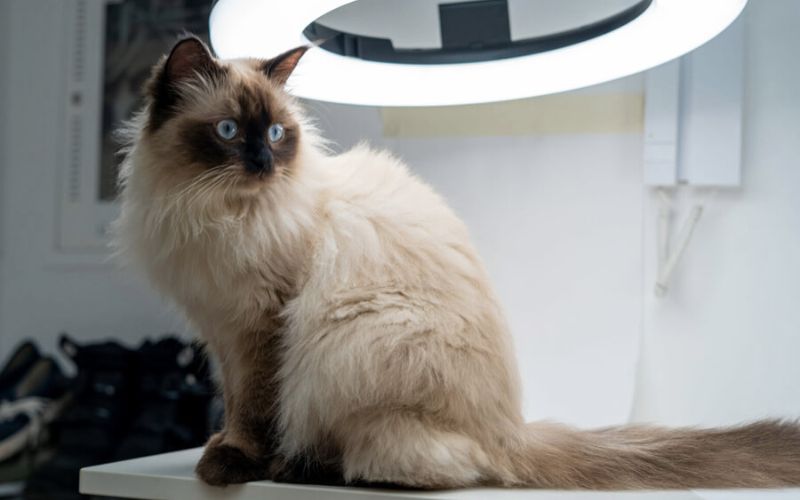 Grooming and Hygiene for Himalayan Cats
Grooming and Hygiene for Himalayan Cats
Common Health Issues in Himalayan Cats
Unfortunately, Himalayan cats are prone to health issues due to their delicate constitution. Their narrowed nasal passages make them susceptible to respiratory problems. Additionally, their watery eyes can lead to conditions such as conjunctivitis, entropion, or retinal atrophy. They may also develop polycystic kidney disease and skin problems like seborrhea or dermatitis.
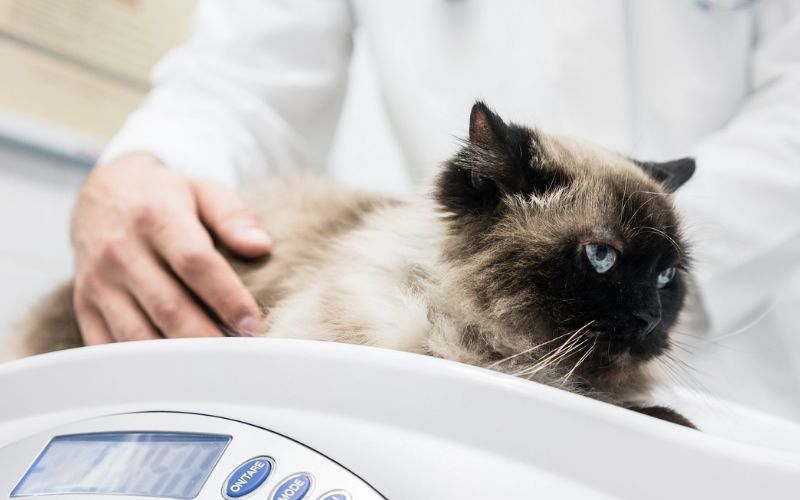 Common Health Issues in Himalayan Cats
Common Health Issues in Himalayan Cats
Important Considerations When Caring for Himalayan Cats
Regular veterinary check-ups are crucial for your Himalayan cat’s well-being. Ensure they receive the necessary vaccinations, which fall into two categories:
- Mandatory vaccinations (considered essential for all cat breeds).
- Optional vaccinations (depending on lifestyle, age, medical history, and environment).
- Pay close attention to their diet, opting for cooked food, which is generally safer than raw food. Consult a veterinarian to create a customized and nutritious meal plan for your furry friend.
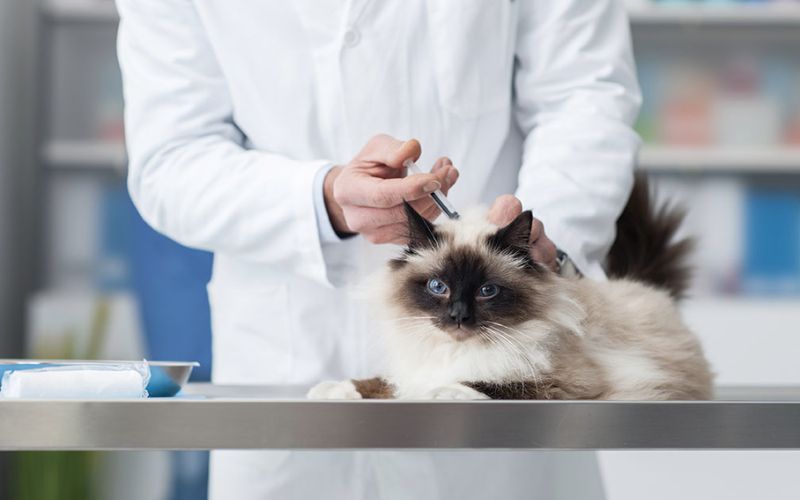 Important Considerations When Caring for Himalayan Cats
Important Considerations When Caring for Himalayan Cats
3 Buying a Himalayan Cat
Price Range for Himalayan Cats
Due to their rarity in Vietnam, Himalayan cats come with a hefty price tag. A purebred Himalayan cat with proper documentation can cost anywhere from 12 to 15 million VND. For imported and 100% purebred kittens, expect to pay no less than 15 million VND, even for young or newborn cats.
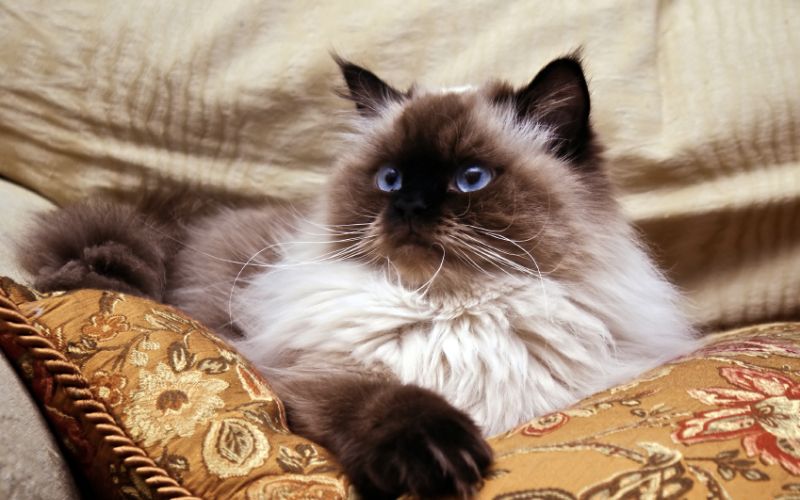 Price Range for Himalayan Cats
Price Range for Himalayan Cats
Things to Consider When Buying a Himalayan Cat
Given the high price of Himalayan cats, it’s essential to purchase from a reputable breeder who can provide proof of their lineage, purity, and health. In addition to the initial cost, be prepared for ongoing expenses, including food, grooming, veterinary care, toys, and treats.
We hope you’ve enjoyed learning about the wonderful world of Himalayan cats. Thank you for joining us, and we look forward to sharing more fascinating cat-related content with you in the future!
Gifting Ideas for the Considerate Libra: 12 Perfect Pieces
Are you struggling with what to get the Libra in your life? We’ve got you covered! From luxurious items to thoughtful tokens of appreciation – we’ve rounded up our top 12 picks for the perfect gift for Libras. Known for their fairness, kindness, and love of aesthetically pleasing things, these presents will be sure to make your special someone smile. Read on to find the ideal present for your Libra!





































